
Buying a house is often daunting and intimidating. However, it is a thrilling experience to search for your own home. You only need to ensure that the property you’re buying is in good condition so you do not have a lot of unnecessary inconvenience and stress, like calling for HVAC emergencies. This is an important factor to consider, especially if you are buying a house with an old HVAC.
5 Things To Check On The HVAC System When Buying A New Home
Contents
This article includes five items you should check about the heating and air conditioning system when buying a home.
1. Assess The HVAC Equipment
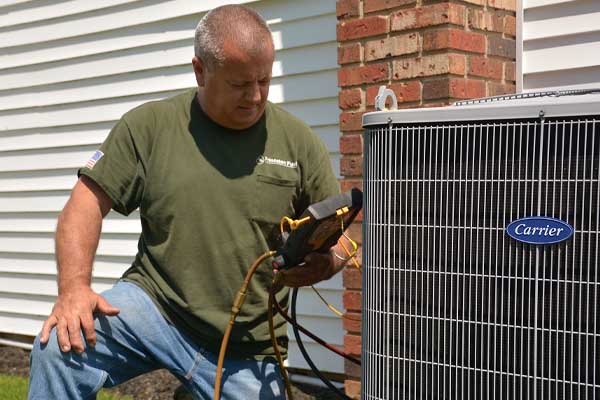
Conduct an HVAC equipment inspection when doing a walkthrough of a house. Look for signs of cracks, water stains, dents, and rust. Switch on the air conditioner and furnace unit to listen for unusual sounds, such as hissing and clanging.
Check the unit’s age. Most HVAC systems have an expected lifespan of around 15 years before they require replacements, while some can stretch it to 20 years or more with proper maintenance. Inquire about maintenance records of the units and if you can see them. If the system is over 15 years old, consider how the replacement cost will fit into your budget. You can also ask the technicians from PFO Heating & Air Conditioning for a professional assessment.
2. Inspect The HVAC Ductwork
The ducts also won’t last forever. Check the ductwork in all areas. If you have access to a crawl space or the attic, search for gaps along the ductwork runs. Examine all vents to ensure all ducts are firmly connected.
Peek inside the ductwork to see if there’s dust built-up or signs of mold growth. Dust can be removed, but the accumulation points to neglect. On the other hand, mold suggests excess moisture in the ductwork, which can lead to potential failure.
3. Inquire About Insulation
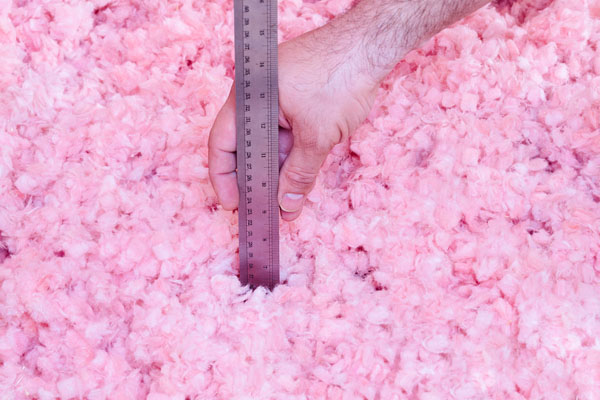
Knowing the house’s insulation level and when it was installed is crucial. If there is inadequate insulation, the home isn’t energy efficient, so the energy bills are higher. Insulation installed some years ago means it has likely settled, so additional insulation needs to be added. If the real estate agent doesn’t have this information, ask them to pass the inquiry to the seller.
Take time to assess your comfort level as you walk through the home. Are there drafts as you walk past doors or windows? Are there rooms that feel colder or hotter than others? Does the air feel musty or stale?
4. Consider The Refrigerant
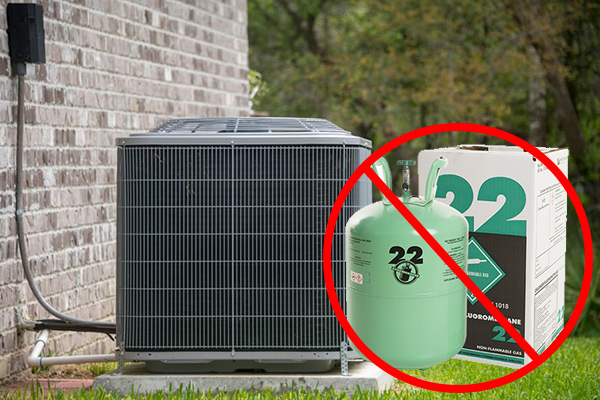
Check what refrigerant type the HVAC system uses. Older systems may utilize R-22, which was commonly used for many years. However, the EPA has banned its use in new HVAC systems. It was banned entirely in 2020, so existing units that still use R-22 must be retrofitted for a new refrigerant, or you need to get a complete AC unit replacement.
5. Weigh The HVAC Replacement Cost & Ongoing Energy Expenses
If you purchase a home that suddenly needs an HVAC system replacement, do you have the funds to handle it? Buying a home equipped with an old system means you are at risk of this scenario.
It would help if you also considered the system’s operational cost. The homeowners shouldn’t have any issue showing you their energy bills for the past two years at the minimum. Unusually high energy bills typically mean the HVAC system is poorly maintained or near the end of its lifespan.
These tips will help you determine if the HVAC system in a house should keep you from buying it. You should also consider having an HVAC company provide a professional assessment during the home-buying process. Contact PFO Heating & Air Conditioning to set an appointment.
Additional Items To Consider
Listed here are several additional items to inspect around the home regarding the HVAC system:
Room to Room
Be conscious of the moisture level and temperature as you move from one room to another. There may be drastic changes in certain rooms or areas around the home. Several common causes of uneven temperatures are:
- A wrong-sized HVAC unit
- Poor insulation
- An aging HVAC system
- Blocked or leaky air ducts
- Blocked vents
Vent Flow
Notice where the intake and outflow vents are installed. Does air consistently flow through these vents? Does the force of the air change from room to room or vent to vent? Several common reasons that there is low airflow passing through some or all the vents include duct leaks, dirty or clogged filters or ducts, a filter that is too restrictive for the unit, or vents that are too small or too big.
HVAC Zoning
Does the home have multiple heating and cooling zones? If not, check if your current system is capable of zoning should you want to have it set up in the future. Ask your realtor to find this out for you.
Heating & Cooling System Age
Determine how old the installed system’s make and model is. Inquire when it was installed as well. Research the specific model and know the facts regarding these HVAC systems’ typical lifespans. At times, it may seem that you have an old HVAC system when it still has a few years left in it. Air conditioners usually have a 15-year service life, while furnaces need replacing once they reach 15 to 20 years old, on average.
HVAC Maintenance History
Ask the current homeowner to give you as much repair and maintenance history as possible. This helps determine where you are in the upkeep interval and how well the system was maintained. Older and poorly maintained units are more likely to break down. They also usually need to be replaced earlier than units that have been adequately maintained.
Warranties & Service Plans
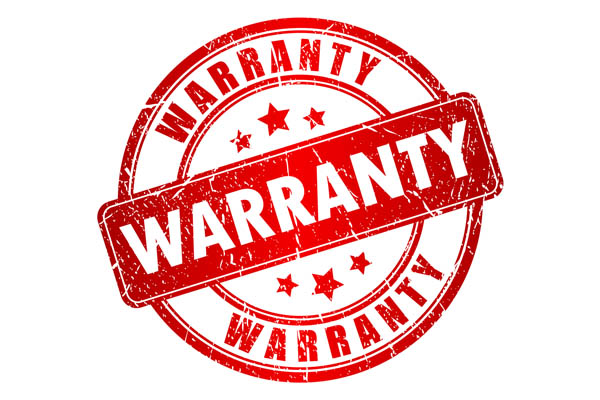 Does the HVAC system have any active warranties or service plans? More importantly, can they be transferred to you, or can you use them as long as they are in place? Inquire all this vital information to the current homeowner. You can also ask the existing homeowner to include a one-year home warranty for the HVAC system and other appliances in case of a breakdown.
Does the HVAC system have any active warranties or service plans? More importantly, can they be transferred to you, or can you use them as long as they are in place? Inquire all this vital information to the current homeowner. You can also ask the existing homeowner to include a one-year home warranty for the HVAC system and other appliances in case of a breakdown.
HVAC Equipment Manuals
Ensure that manuals from all HVAC machinery equipment are collected. If there are no physical manuals available, get their model or serial numbers, as most manuals are available for downloading online. Manuals can provide helpful insight in an emergency.
Thermostats & Detectors

Inspection includes checking the carbon monoxide/smoke detectors and thermostats. However, I also recommend that you learn their capability, age, and model. Know when their lifespan is expected to end as well. Decide if you want to get replacements.
Physical Unit Inspection
Be conscious of any sounds, rust, and dust. The slightest noise or tiniest speck may point to a developing HVAC system issue. If you are seriously considering buying the home, consider calling an HVAC professional to conduct a complete HVAC unit inspection.
Conclusion
Is the system worth keeping, or will you completely do away with it? Do you need to replace it and install a brand-new system? This is an expensive endeavor, so consider negotiating the price of the house or setting aside funds to get a replacement system.
Call PFO Heating & Air Conditioning For All Your HVAC Needs
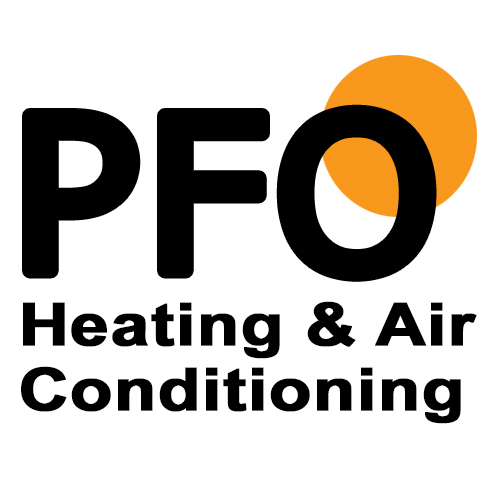 For superior heating and cooling services in the greater Hamilton, New Jersey area, call PFO Heating & Air Conditioning. Our company has the best professionally certified technicians, and they can perform excellent heating and cooling installations, replacements, tune-ups, and repairs. All our friendly techs have the experience, skills, and knowledge to service your HVAC system accurately.
For superior heating and cooling services in the greater Hamilton, New Jersey area, call PFO Heating & Air Conditioning. Our company has the best professionally certified technicians, and they can perform excellent heating and cooling installations, replacements, tune-ups, and repairs. All our friendly techs have the experience, skills, and knowledge to service your HVAC system accurately.
Our company has the most affordable heating and cooling service prices in the area. Our tune-up services can increase home comfort and energy efficiency while lowering home energy costs. We can recommend the best solutions within your budget if you require an HVAC repair or replacement system. All our work is guaranteed to ensure your satisfaction. To schedule an appointment, give PFO Heating & Air Conditioning a call today. We offer free, in-home estimates.
Click here to contact us now or call us at (800) 253-9001 to find out more! Click the link to view our service area.



